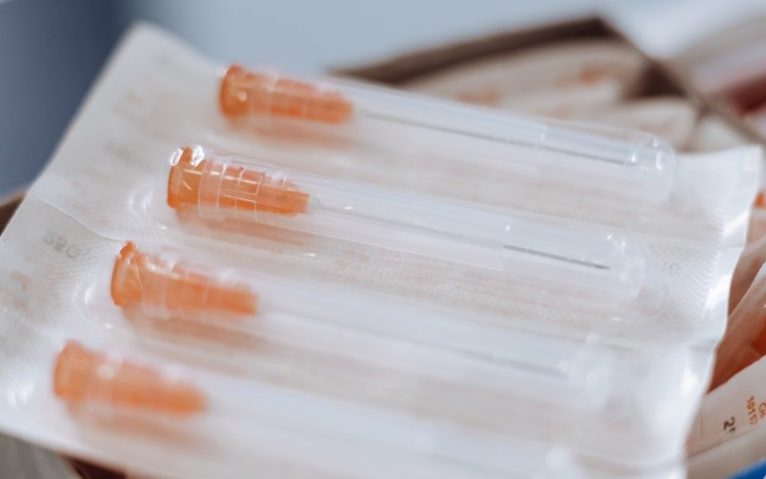Needle exchange programs, also known as NEPs, have recently been established as a current standard of universal health care. These community-based systems allow intravenous drug users to exchange their used syringes for clean, sterile ones to reduce the spreading of damaging and potentially lethal blood-borne illnesses such as Hepatitis C and reduce HIV.
Those who operate needle exchanges will frequently supply drug users with more than clean needles – many NEPs offer HIV and Hepatitis testing, counseling, drug and alcohol treatment options, and information on numerous blood-borne diseases and preventative measures.
What Are Needle Exchange Programs?
Needle exchange programs (NEPs), also known as syringe services programs (SSPs) or syringe exchange programs (SEPs). These are community-based services that provide sterile needles and syringes, facilitate safe disposal of used syringes, and provide a trusted link to other services and programs. Although controversial, these harm reduction programs have their pros and cons.
Needle Exchange Programs by the Numbers
Needle and syringe programs are currently legal in 38 states nationwide. By 2020, there are 420 syringe exchange programs open in the United States. Estimates of the cost of running NEPs goes anywhere from $0.4 for a small rural location that serves about 250 patients to $1.9 million for a significant urban area that sees 2,500 patients.
However, NEPs are still a cost-effective solution for public health.
Back in 2005, according to the Centers for Disease Control and Prevention (CDC), the cost per syringe was $0.97. The cost of preventing one HIV through NEPs is anywhere between $4,000 to $12,000. Compared to the estimated $190,000 public health costs of treating someone with HIV.
What Are the Benefits of Needle Exchange Programs?
Close to two percent of new HIV diagnoses in 2018 is the result of intravenous drug use. Unfortunately, when drug addicts don’t have access to clean syringes, contracting diseases like HIV and hepatitis is very common.
Beyond preventing the spread of blood-borne diseases, needle exchange programs offer addicts:
- Access to relapse prevention drugs
- Connection with addiction treatment centers
- Screenings for HIV/AIDS and other illnesses
- Education about substance abuse and relapse
- Access to detox programs and centers
Estimates say that injecting drug users that visit NEPs are five times more likely to seek drug addiction treatment than those who don’t attend these programs.
Are Syringe Exchange Programs Effective?
Almost a decade after needle exchange programs launched, the CDC seems positive about its results. They estimate that these programs contributed to a reduction of risky behaviors by 80%. They also noticed that new cases of HIV/AIDS went down by 30 percent.
Another study recorded the prevention of 120 injection-related HIV cases in 24 months, in Washington D.C. alone. But, SEPs aren’t solely about preventing blood-borne illnesses. The CDC estimates that users of SEPs are three times more likely to stop using drugs than those who don’t use the program.
Controversy Around the Programs
Even though needle exchange for drug addicts has proven extremely effective in helping reduce the spreading of blood-borne diseases, there is still an unnecessary controversy surrounding the issue.
Some individuals believe that distributing clean needles to drug users will only work to exacerbate the problem of rampant heroin abuse.
Those with a severe chemical dependency will go to any lengths to obtain and use their drug of choice, regardless of potential consequences or health-related risks. For this reason, NEPs are incredibly beneficial.
While they do not work to reduce the number of individuals currently using drugs, they have proven to make a substantial positive impact on the transmission of deadly diseases such as HIV and Hepatitis C by reducing the likelihood that addicts will share unsanitary syringes.
Pros and Cons of Needle Exchange Programs
Regardless of what side of the argument you’re coming from, there are pros and cons to needle exchange programs that can’t be diminished.
Pros:
- A lower number of contaminated needles in a community
- Reduced drug-related and sexual-risk behavior
- Better access to drug treatment referral services
- Improved access to resting and diagnostic services
- Increased access to education about substance abuse
- Better communication with hard-to-reach populations
- Reduced prevalence of new infections
Cons:
- Enables current illicit drug use in some cases
- Could increase injection drug use
- The increased financial burden on taxpayers and federal funds
- Increased attraction of high-risk individuals
Despite the stigma imposed on NEPs, the World Health Organization shows in their in-depth report that these programs:
- Increased availability of clean needles correlates with less HIV infections
- Are cost-effective solutions to control blood-borne illnesses
- Can help increase recruitment in substance abuse treatments
- Showed no evidence of having negative consequences for the communities
Get Addiction Help
Any form of substance abuse can be dangerous. But, intravenous drug abuse can have even more fatal consequences. Harm reduction programs are an effective way to help people who inject drugs avoid many dangers.
Still, the safest option will always be to seek addiction treatment and get clean. For more information on needle exchange programs in your area, you can visit this directory by the Harm Reduction Coalition.
If you or someone you love is battling with drug abuse, please contact one of our addiction specialists. At Lighthouse Recovery Institute, our therapists will offer a comprehensive treatment program based on your unique needs. We don’t believe in cookie-cutter solutions that pretend to put a band-aid on addiction struggles.
Our therapists analyze your individual needs, look at a holistic and comprehensive plan that incorporates detox, group support, cognitive-behavioral therapy, and even family support to make sure you’re receiving the tools you need to fight your addiction and achieve long-term sobriety.
Let go of the stigma and start walking your path towards recovery today. A drug-free life is possible; we’re here to help









